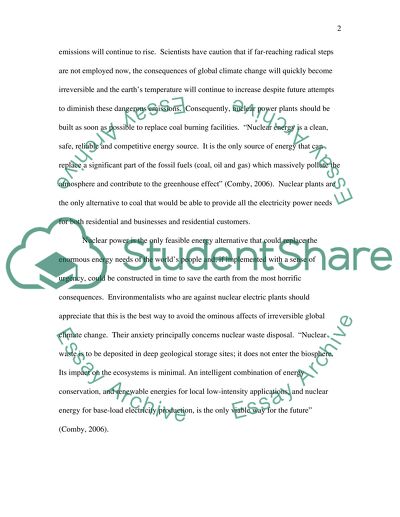Cite this document
(“The Benefits of Nuclear Power Essay Example | Topics and Well Written Essays - 1000 words”, n.d.)
Retrieved de https://studentshare.org/military/1390386-nuclear-power
Retrieved de https://studentshare.org/military/1390386-nuclear-power
(The Benefits of Nuclear Power Essay Example | Topics and Well Written Essays - 1000 Words)
https://studentshare.org/military/1390386-nuclear-power.
https://studentshare.org/military/1390386-nuclear-power.
“The Benefits of Nuclear Power Essay Example | Topics and Well Written Essays - 1000 Words”, n.d. https://studentshare.org/military/1390386-nuclear-power.


